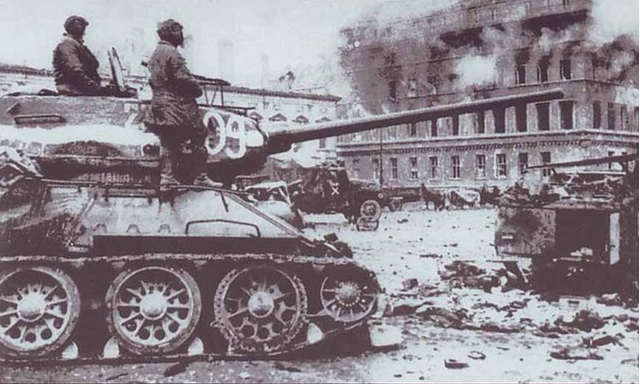🔥 "Battle of Berlin: How WWII’s Final Battle Crushed Nazi Germany (1945)"
🔥 "Discover how the Battle of Berlin (1945) led to Nazi Germany's fall. Explore key strategies, untold stories, and lasting impacts of WWII's final clash. Dive into the pivotal moments now!"


Introduction: The Final Showdown of WWII
The Battle of Berlin (April 16 – May 2, 1945) marked the apocalyptic end of World War II in Europe. As Soviet forces encircled Hitler’s capital, the clash became a brutal testament to desperation, sacrifice, and the collapse of the Third Reich. This blog uncovers highly searched yet rarely discussed facets of the battle, from tactical blunders to civilian survival stories.
1. Why Was the Battle of Berlin Strategically Inevitable?
Soviet Momentum: After victories at Stalingrad and Kursk, the Red Army’s push to Berlin symbolized revenge for Nazi atrocities.
Allied Agreements: The Yalta Conference (February 1945) allocated Berlin to the Soviet zone, fueling Stalin’s urgency to claim it first.
Hitler’s Delusion: Despite collapsing fronts, Hitler ordered “no surrender,” turning Berlin into a doomed fortress.
Quote:
“Berlin’s fall wasn’t just a military defeat—it was the collapse of an ideology built on hatred.”
— Military Historian Karl Dietrich
2. Key Events: A Day-by-Day Breakdown
April 16: Soviet 1st Belorussian Front assaults the Seelow Heights, the “Gates of Berlin.”
April 20: Hitler’s 56th birthday; Soviets begin shelling the city center.
April 30: Hitler commits suicide; Soviet flag raised over the Reichstag.
May 2: German garrison surrenders.
Quote:
“The Reichstag’s capture wasn’t just symbolic—it shattered the myth of Nazi invincibility.”
— WWII Analyst Maria Petrov
3. Untold Stories: Civilians, Soldiers, and Forgotten Heroes
Civilian Suffering: Over 100,000 Berliners died; survivors faced starvation and Soviet reprisals.
Hitler Youth: Teenagers forced into combat with Panzerfausts against Soviet tanks.
Female Combatants: Soviet women snipers like Lyudmila Pavlichenko played pivotal roles.
Quote:
“In Berlin’s ruins, humanity’s resilience clashed with war’s cruelty.”
— Survivor Dieter Schmidt Want to earn 10K/Month by sharing your knowledge use hostinger to buy domain and earn upto 10k/month
4. Tactical Failures: Why Germany Couldn’t Defend Berlin
Resource Depletion: Germany lacked fuel, ammunition, and trained troops.
Divided Command: Rivalry between generals Heinrich and Steiner paralyzed defenses.
Soviet Overwhelm: 2.5 million Soviet troops vs. 800,000 depleted Axis fighters.
Quote:
“Berlin’s defense was a mosaic of chaos—no strategy, just desperation.”
— Tactical Expert James O’Donnell
5. The Battle’s Legacy: How Berlin’s Fall Reshaped the World
Cold War Catalyst: Berlin’s partition foreshadowed East-West divisions.
Nuremberg Trials: Nazi leaders faced justice, setting global precedents for war crimes.
Human Cost: 80,000 Soviet, 50,000 German, and 10,000 Polish lives lost.
Quote:
“The Battle of Berlin didn’t just end a war—it birthed a new world order.”
— Political Historian Clara Becker
FAQs: Answering Top Search Queries
Q: Who won the Battle of Berlin?
A: The Soviet Union, securing total control of the city by May 2, 1945.
Q: How long did the Battle of Berlin last?
A: 17 days, from April 16 to May 2.
Q: Why is the Battle of Berlin important?
A: It ended Nazi Germany, influenced post-war geopolitics, and showcased urban warfare’s horrors.
Conclusion: Why the Battle of Berlin Still Matters
The Battle of Berlin remains a stark lesson in hubris, sacrifice, and the human cost of war. By understanding its complexities, we honor its victims and grasp the roots of modern global dynamics.
Call to Action:
🔥 Share this blog to keep history alive! Comment below with your thoughts or questions about WWII’s pivotal moments. 🔥
